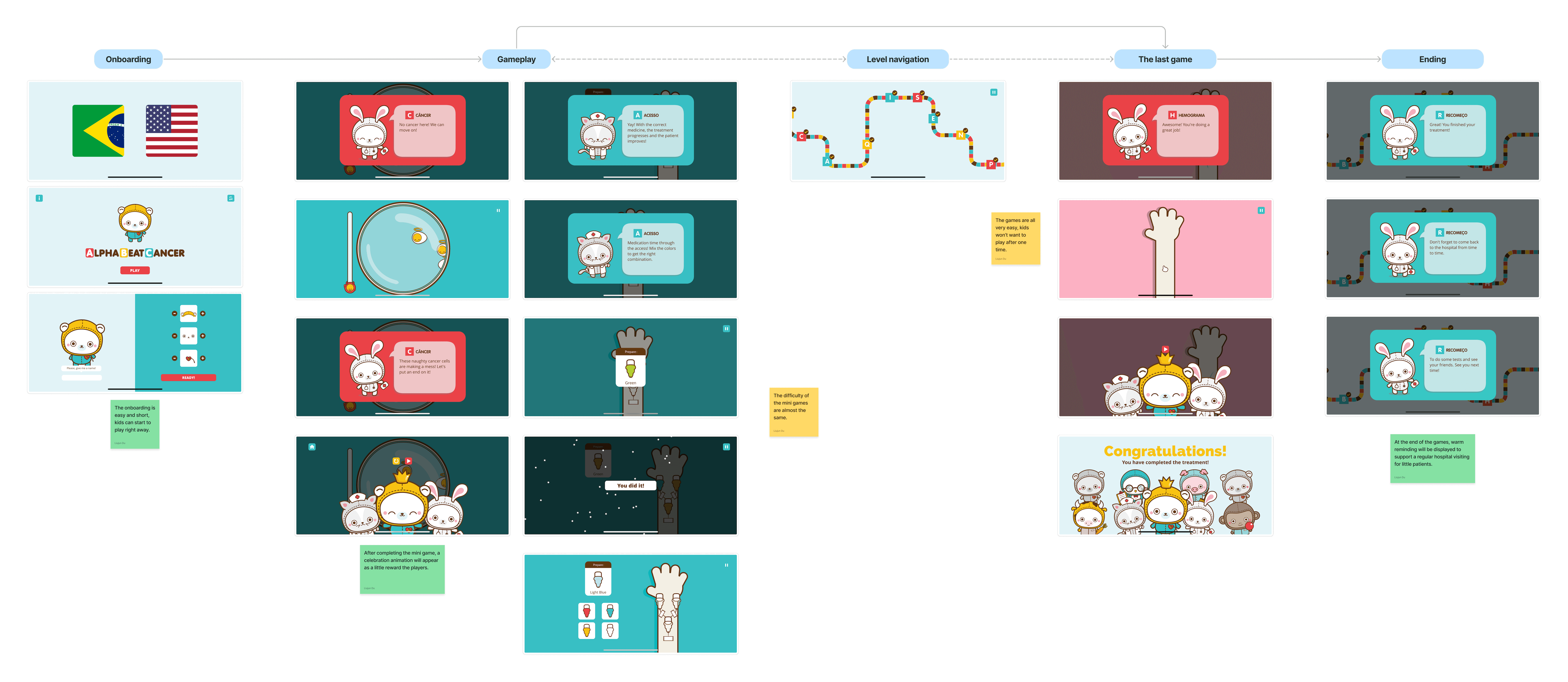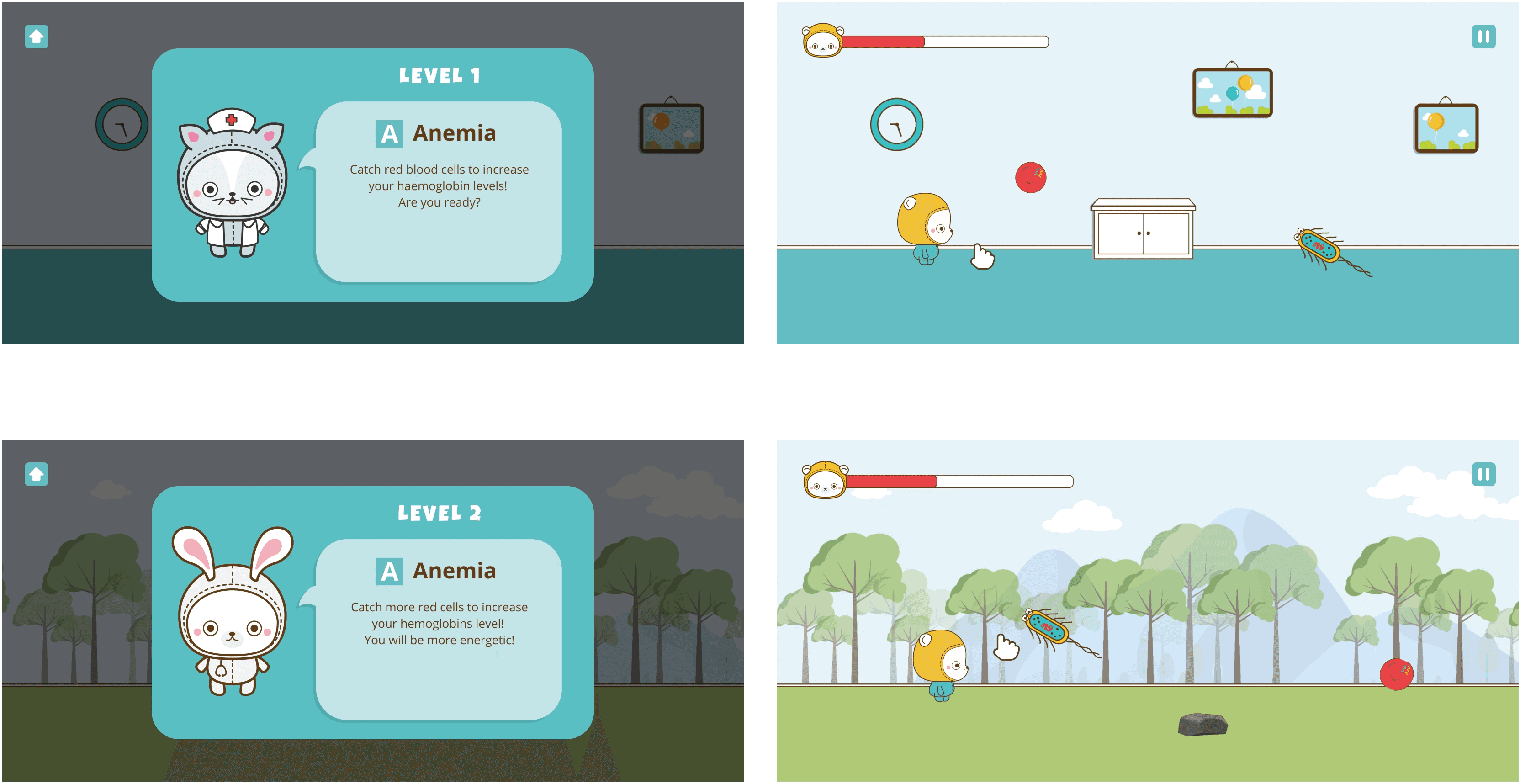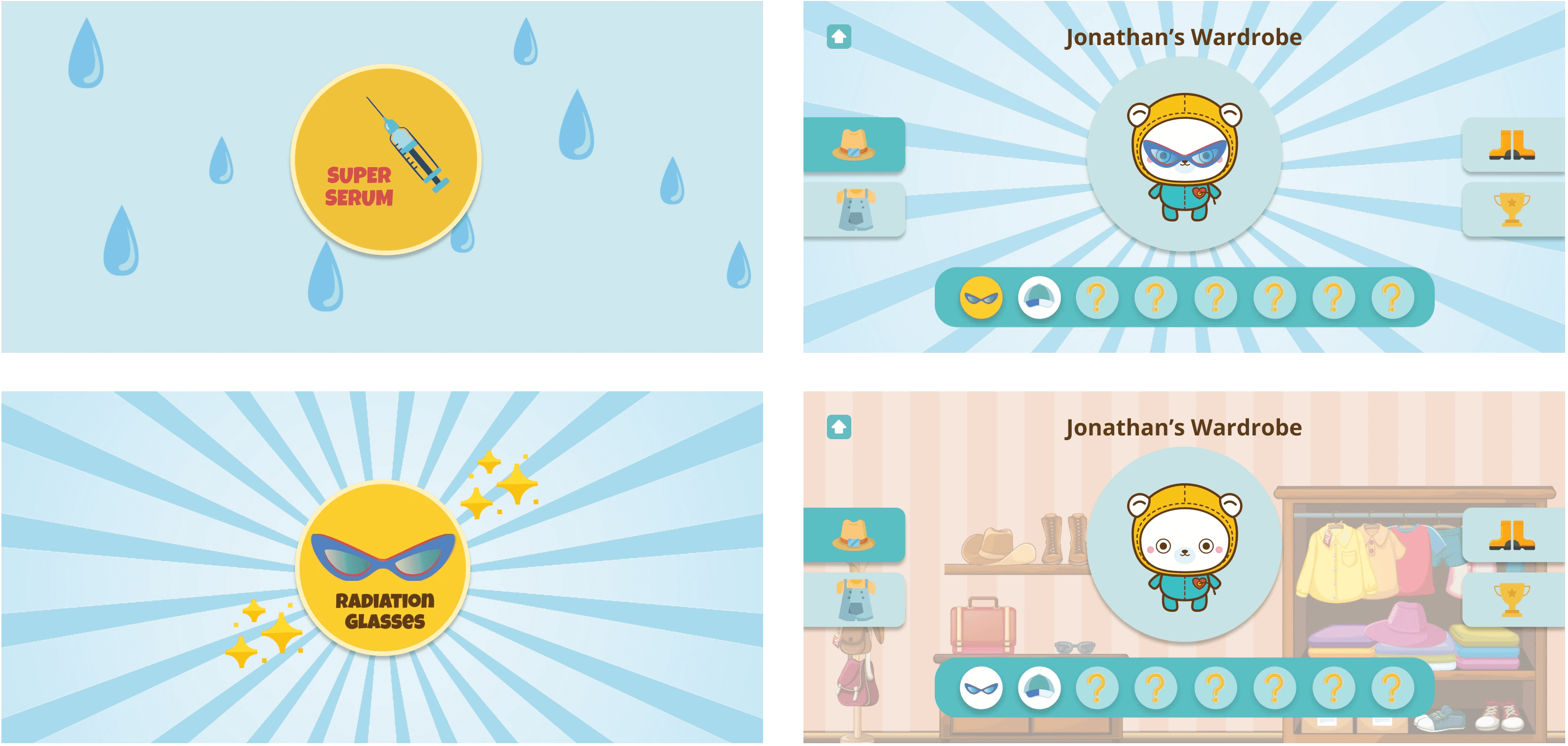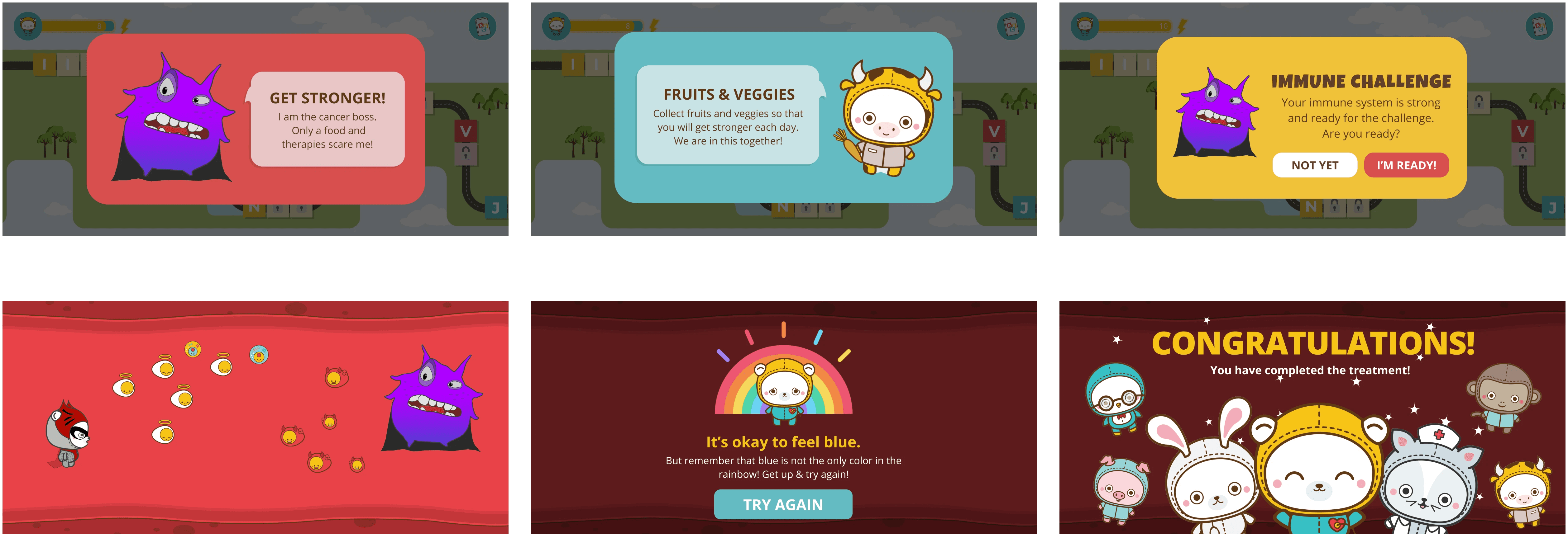AlphaBeatCancer - enhancing the gameplay
What is AlphaBeatCancer?
AlphaBeatCancer is a mobile game belongs to Beaba (bay-ah-bah), an institute that provides clear, objective and optimistic information about diseases and treatments.
It’s a quick guide with everything you need to know about cancer, for little patients and their companions. This game app includes 20 mini games related with the terms that will bring entertainment and information about cancer and its treatment.
Design challenge
How to attract kids to play more to learn more about cancer?

Audit of the gameplay and user flow.
The problems
With a first round of user testing of the current gameplay and user flow, we found that there are three main pain points that make users (especially children) lose their interests very quickly:
Multiple mini-games with same difficulty and lack of variation.
Little patients get bored after play it once or twice.
No reward structures, no incentives.
Design goals
How might we design a more challenging game and a more attractive rewarding system?
Increasing the engagement for little players.
Conveying the positive and objective information about diseases and treatment.
Educating them to take care of themselves in daily life and during therapies.
Scope and constraints
Target user: 6-8 years old little patients who have been diagnosed with cancer.
Design scope: Redesign the overall structure of the game, instead of individual mini games.
Constraints: Avoiding portraying cancer like a battle with losers.
Our solutions
Multi-levels of mini games
We created a multi-level minigame system to increase the difficulty of minigames, and try to include more terms from the Beaba book to the game play. The increasing difficulty will be more challenging and more attractive for kids. Players can unlock a reward after completing all levels within one term.

Sketches of the flow for the new mini game systems.
Different backgrounds help little patients get familiar with all kinds of environments, such as hospitals, forests, playgrounds. Guiding cursors at the beginning of each minigame teach kids who cannot read how to play the game. More gestures and skills will be learned in different levels.

A reward system
After completing all levels of minigame within one terms, player will unclock a reward. It could be a tool, a hat or a pair of boots. Tools can provide various abilities for players to be prepared for the final immune challenge. They can change their outfit in the wardrobe and see all the collections.
We tried to avoid words like war, battle, weapon, winner or loser. Life is not a battle, we should live a happy and quality life.

Immune challenge with the 'Cancer Boss'
We added a Cancer Boss for player to take on a Immune Challenge. The boss will show up from time to time to encourage players to complete more levels and challenge him. The first challenge starts after the player's strength bar reaches to 10 units, at this time, the players haven't finished all the minigames. So , they will lose this time. After several challenges, players will complete all the minigames and gain all the rewards, then they can beat the Cancer Boss.

💡
This seems to be a good idea in traditional game design. But after conducting user interviews and tests with several adult patients, doctors and teachers, we decide to get rid of this boss challenge.
Because we learned that not all little patients can eventually overcome the disease, so in the process of their treatment, this final question and expectation is generally not mentioned.
Cancer sometimes is not like the boss in the game, you cannot try again when you lose.
Reflection